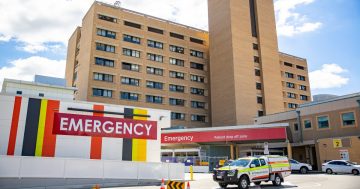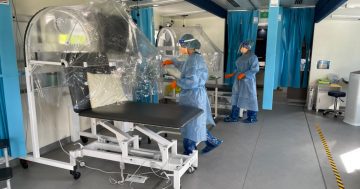Chief Minister Gallagher is taking some pride in new numbers added to the MyHospitals website showing Canberra is doing well for infection control:
“The MyHospitals website reports the rates of staphylococcus aureas bacteraemia – better known as ‘staph’ or ‘golden staph’ infection – acquired in hospitals for which the national benchmark is a maximum of two cases for every 10,000 days of hospital care,” the Chief Minister said.
“I’m happy to report that the result for the 2010-11 financial year for Canberra Hospital was 1.06 cases per 10,000 patient days, with Calvary Public Hospital reporting 0.60 cases per 10,000 patient days.
“The higher rate for the Canberra Hospital is consistent with its role as our major trauma and referral hospital, as the higher level of complex and major trauma episodes results in a higher probability of hospital acquired infection.
Well done to everyone remembering to wash their hands.


















